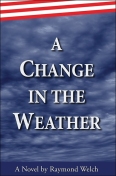Even the most committed capitalist would have difficulty ascribing ownership to the air we breathe. At the same time, our private-property ideologue would squirm at the notion that all living people own it jointly. For him, that smacks of socialism.
But the concept of common ownership of the air seems undeniable, socialist or not. There’s simply no logic—legal or moral—that bestows title to any part the atmosphere. It can’t be apportioned. It can’t be controlled. It can’t be bounded in the durable way required to create a deed.
(When you think about real estate ownership, you realize the first deeds had to stem from something arbitrary, like conquest or proclamation. When Europeans colonized North America and wrested control from the indigenous people, it pretty much boiled down to raw power, no matter what paper was attached to it.)
The atmosphere embodies the central tenet of America’s Declaration of Independence: all men (people) are created equal. We each have an equal interest in it. There’s no aristocracy with a dynastic claim to a greater share or a greater right to alter it.
Water is somewhat more amenable to individual ownership, through the apportionment of rights. Water is local—even bodies as large as the Colorado River—compared to the envelope of gases that constantly swirl about the planet.
The deepening California drought will be a test. The convention (that’s what it is, when you boil away the legalese) that there are “senior” rights to water, and those who lack them must go thirsty, will seem like a declaration of war if things get bad enough.
We make a de facto claim of “senior” atmospheric ownership when we pollute more than others.
Just because a convention worked on the frontier doesn’t mean it makes sense until the crack of doom. Conventions aren’t immutable principles, although we often treat them as such. Circumstances change, even invert. Today is the opposite of the frontier.
Think of fireplace smoke. When just a few houses populated an area, it wasn’t a big problem. But with population, the ability of the air to absorb smoke flips from surplus to scarcity. The “right” to burn wood, the “tradition” of fireplaces, have to give way to everyone’s right to breathe.
If we all own the atmosphere equally, why not collect payments for polluting it equally? That’s the essence of Citizens’ Climate Lobby’s proposal. A fee would attach to carbon where it enters the economy. The seller embeds the fee in his goods and services so he can recover the cost. Consumers pay that embedded cost. The more carbon embedded in the good or service, the higher the consumer’s price.
This revenue would be pooled, then divided equally, 100 percent, at regular intervals, among all “owners” of the atmosphere —that is to say, all of us. Bigger spewers of carbon pay more, smaller ones pay less, and we all collect the same rent. On net, big polluters are payers, small ones gainers.
Seems practical. fair, democratic, and a perfect expression of “all people are created equal.” And, if the fee escalates annually by a substantial amount, it’ll be extremely effective in reducing carbon in just a few years without relying on top-down government mandates, complex and obscure financial markets, or volunteerism. Sellers will try to squeeze carbon out of their costs so their products and services are more competitive. Buyers will prefer lower-carbon alternatives to use as little of the dividend as possible for carbon fees, and keep the residual money.
We all have an interest in maintaining a viable atmosphere. Here’s a way to do it that’s compatible with our existing economic structures and the bedrock principle of democracy: all people are created equal.

